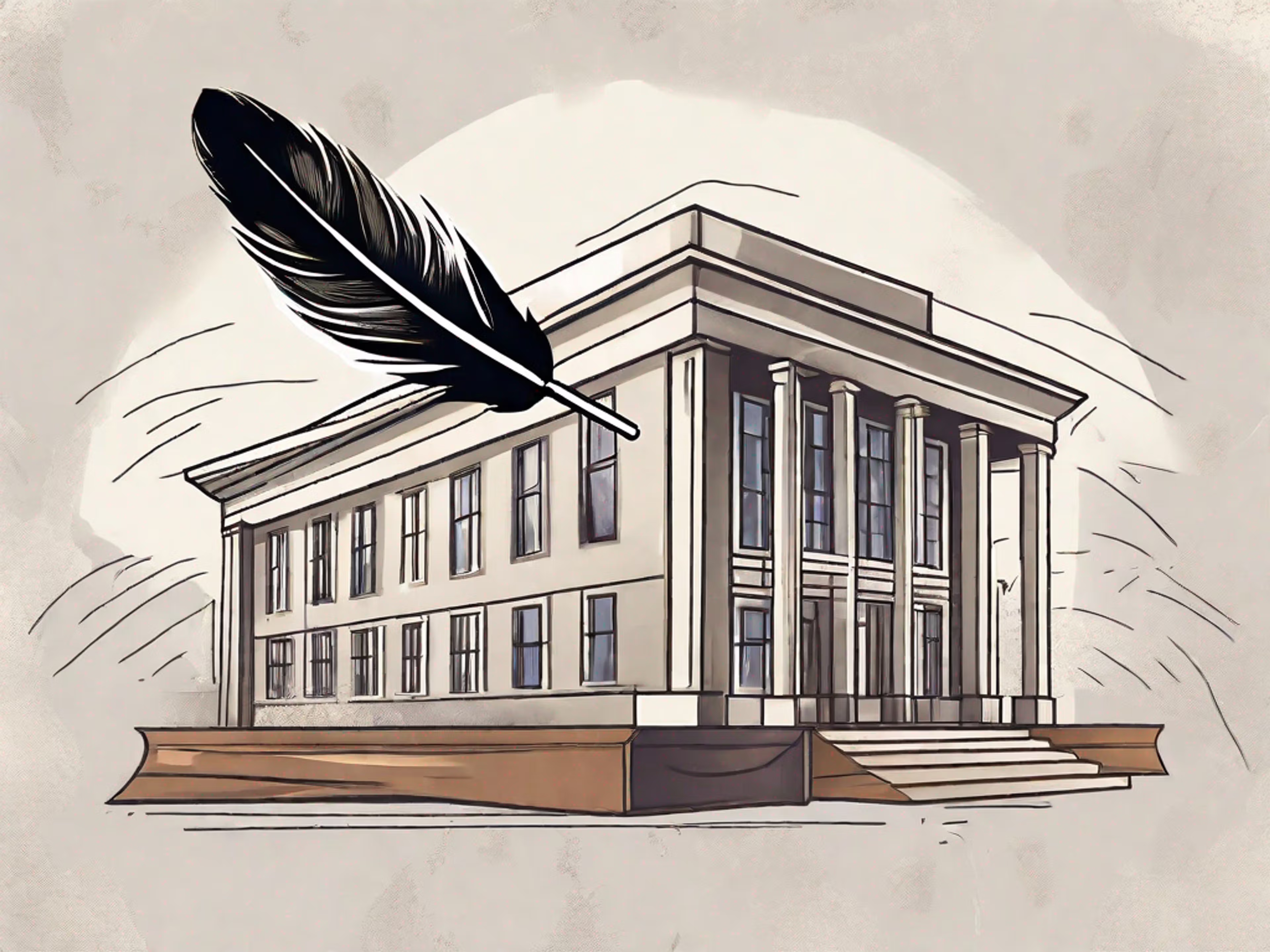MBA Resume Examples & Analysis [With Template]
Looking for inspiration to create a standout MBA resume? This article features comprehensive MBA resume examples and analysis, along with a downloadable template to help you craft a winning resume that showcases your skills and experience in the competitive business world.
Posted January 23, 2024

Table of Contents
In the competitive world of business, having a well-crafted resume is essential, especially for those pursuing a Master of Business Administration (MBA) degree. An MBA resume serves as a crucial component of your application, showcasing your qualifications, achievements, and skills. In this article, we will explore the importance of a well-crafted MBA resume and provide you with practical examples and analysis.
How Important is a Well-Crafted MBA Resume?
A well-crafted MBA resume can make a lasting impression on recruiters and admissions committees. It goes beyond a traditional resume, highlighting your educational background, professional experiences, and unique qualifications. By strategically organizing and presenting your information, you can effectively convey your suitability for MBA programs and potential future roles in business leadership.
When it comes to MBA applications, the resume plays a crucial role in showcasing your abilities and potential. It serves as a comprehensive snapshot of your qualifications, acting as a bridge between your achievements and the admissions committee's evaluation criteria. While other application components, such as essays and recommendation letters, provide a holistic view of your profile, the resume allows you to showcase your academic and professional accomplishments concisely.
One key aspect of the MBA resume is its ability to highlight your unique strengths and illustrate how your experiences align with the objectives of an MBA program. It is not just a list of your educational and professional background; it is an opportunity to demonstrate your potential as a future business leader.
The Role of an MBA Resume in Your Application
The MBA resume serves as a comprehensive snapshot of your qualifications, acting as a bridge between your achievements and the admissions committee's evaluation criteria. While other application components, such as essays and recommendation letters, provide a holistic view of your profile, the resume allows you to showcase your academic and professional accomplishments concisely. It is an opportunity to highlight your unique strengths and illustrate how your experiences align with the objectives of an MBA program.
When crafting your MBA resume, it is essential to consider the specific requirements and expectations of the programs you are applying to. Each school may have its own preferences and guidelines for resume format and content. Researching the target schools and understanding their values and priorities can help you tailor your resume to make it more impactful and relevant.
Furthermore, the MBA resume should not be seen as a mere summary of your academic and professional history. It should be viewed as a marketing tool that showcases your potential and demonstrates why you are a strong candidate for an MBA program. It is your chance to make a compelling case for yourself and convince the admissions committee that you have what it takes to succeed in the program and make a significant impact in the business world.
Key Elements of a Successful MBA Resume
A successful MBA resume incorporates various key elements that not only demonstrate your academic credentials but also reflect your potential as a future business leader. These elements include:
- Clear and concise contact information and objective statement.
Providing accurate and up-to-date contact information is essential for recruiters and admissions committees to reach out to you. Additionally, including a well-crafted objective statement can help convey your career aspirations and align them with the objectives of the MBA program you are applying to.
- Highlighting your educational background and MBA qualifications.
Your educational background, including your undergraduate degree and any relevant coursework, should be clearly stated in your MBA resume. Additionally, highlighting any MBA-related qualifications, such as certifications or specialized training, can further enhance your candidacy.
- Detailing your professional experiences and accomplishments.
Your professional experiences play a crucial role in demonstrating your skills, leadership abilities, and industry knowledge. It is important to provide detailed information about your roles, responsibilities, and accomplishments in each position, showcasing your impact and contributions.
- Showcasing your relevant skills and certifications.
In addition to your educational and professional background, it is important to highlight any relevant skills and certifications that are valuable in the business world. This may include proficiency in specific software or programming languages, project management certifications, or language fluency.
By incorporating these key elements into your MBA resume, you can create a comprehensive and compelling document that effectively showcases your qualifications and potential as a future business leader.
Start with the Basics: Contact Information and Objective
Creating a professional impression begins with a clear and concise contact section. Include your full name, phone number, email address, and LinkedIn profile link. Providing this information ensures that recruiters or admissions committees can easily reach you for further evaluation.
When it comes to crafting the contact section, attention to detail is key. You want to present yourself in the best possible light, so consider using a clean and professional format. Choose a font style and size that is easy to read and consistent throughout your application. This will give your contact section a polished and cohesive look.
Additionally, it's important to pay attention to the details of your email address. Make sure it is professional and does not contain any informal or inappropriate language. Your email address should reflect your professionalism and be something that you would feel comfortable sharing with potential employers or admissions committees.
Crafting a Professional Contact Section
When crafting the contact section, use a clean and professional format. Consider using a consistent font style and size. Additionally, ensure that your email address is professional and does not contain any informal or inappropriate language.
Another important aspect to consider is the placement of your contact information. It should be easily visible and located at the top of your resume or application. This ensures that recruiters or admissions committees can quickly find your contact details without having to search through the entire document.
Furthermore, including your LinkedIn profile link is a great way to showcase your professional network and online presence. Make sure your LinkedIn profile is up-to-date and reflects your current skills, experiences, and achievements. This will provide recruiters or admissions committees with additional information about you and allow them to further evaluate your qualifications.
Writing a Clear and Concise Objective
Your objective statement serves as a brief summary of your career goals and aspirations. Keep it concise, focused, and tailored to your specific MBA program. Highlight your motivations and how the program aligns with your professional aspirations. Avoid generic statements and instead focus on showcasing your unique value proposition.
When writing your objective statement, it's important to be specific and targeted. Research the MBA program you are applying to and understand their values, mission, and goals. This will allow you to tailor your objective statement to align with what the program is looking for in a candidate.
Furthermore, make sure your objective statement is realistic and achievable. It should reflect your genuine passion and interest in pursuing an MBA, while also demonstrating that you have a clear understanding of what you hope to achieve through the program. This will show recruiters or admissions committees that you have carefully thought about your goals and are committed to your professional development.
Highlight Your Education and MBA Qualifications
When presenting your educational background and MBA qualifications, it is crucial to highlight your accomplishments and convey the relevance of your learnings to the MBA program.
How to Effectively List Your Education
List your educational qualifications in reverse chronological order, starting with your most recent degree. Include the school name, degree earned, major or specialization, and graduation date. Additionally, highlight any academic recognition or honors you received.
Showcasing Your MBA Achievements
While presenting your MBA qualifications, emphasize your academic accomplishments, such as relevant coursework, research projects, or leadership roles. Highlighting these achievements indicates your commitment to academic excellence and your ability to contribute to the MBA program's intellectual environment.
How to Detail Your Professional Experience
One of the key aspects of an MBA resume is showcasing your professional experiences, as they demonstrate your practical application of business skills and knowledge.
Choose the Right Job Experiences to Include
Select job experiences that align with your MBA program's objectives and emphasize transferable skills. Include positions that highlight your leadership abilities, project management, problem-solving skills, and industry knowledge. Be selective and focus on the experiences that best showcase your growth and impact.
Use Action Verbs and Quantifiable Achievements
To effectively communicate your professional experiences, use action verbs to describe your accomplishments. Quantify your achievements whenever possible, whether it's financial results, project deliverables, or process improvements. This not only provides context but also demonstrates your ability to drive tangible outcomes.
Showcasing Your Skills and Certifications
In addition to your education and professional experiences, emphasizing your skills and certifications can further enrich your MBA resume.
Identifying Relevant Skills for an MBA Graduate
Identify key skills sought after in the business world, such as leadership, teamwork, analytical abilities, communication, and problem-solving. Tailor your skills section to reflect these competencies, and provide concrete examples of how you've demonstrated them in your academic or professional experiences.
Listing Certifications and Additional Training
If you possess relevant certifications or have completed additional training, include them in this section. These credentials can further demonstrate your commitment to professional development and highlight your readiness to excel in an MBA program.
In conclusion, a well-crafted MBA resume is crucial in showcasing your qualifications, experiences, and skills to admissions committees and potential employers. By understanding the importance of a well-crafted resume, organizing your information effectively, and tailoring your content to highlight your unique value proposition, you can maximize the impact of your MBA application. Use the above examples and analysis to create a standout resume that sets you on the path to success in the competitive world of business.


















